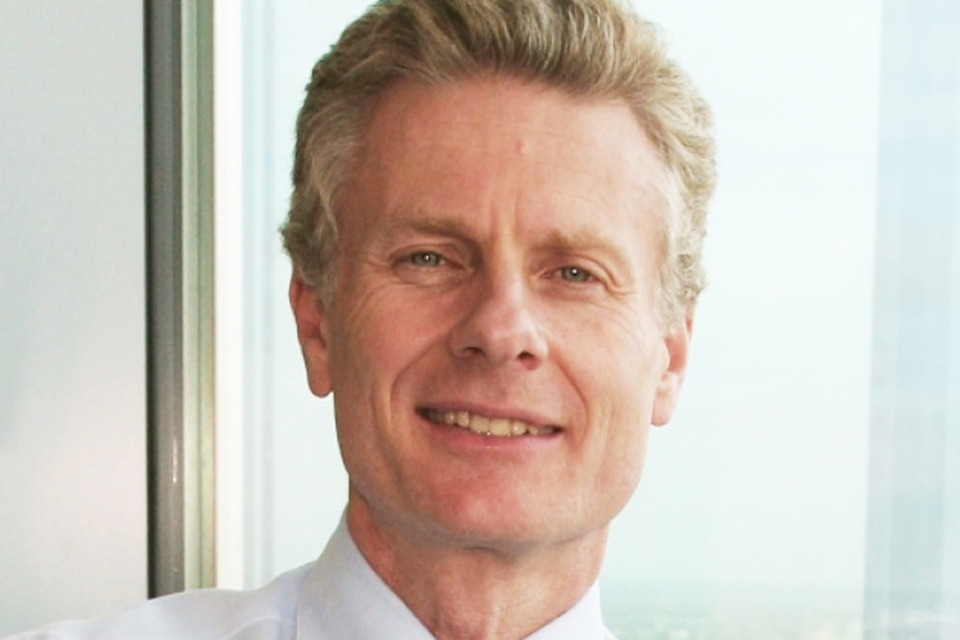Speech by Lord Deighton: infrastructure
Lord Deighton spoke to conference delegates about infrastructure in the UK.

Thank you very much for the kind introduction.
Last September I was asked to join this government because the Prime Minister and the Chancellor looked at what had happened in the summer of 2012, and wanted to transfer some of that Olympic and Parlaympic magic and inspiration to the broader economy.
What had happened during the Olympic and Paralympic games last summer matched perfectly what they wanted to achieve on infrastructure in the UK.
Britain proved it can deliver last summer and we want to build on that success. Delivering infrastructure requires long term commitment, but people across the political spectrum appreciate that it is key to growth.
It has the short term advantages of delivering jobs, but it is also absolutely essential to our industry and businesses over the longer term.
So I was very pleased to join this government, with the ambition of building a better economic infrastructure for the whole of the UK.
When I talk about economic infrastructure, I’m referring to energy – building new power stations for example.
I’m referring to transport – dealing with reforming our rail system, congestion on our roads or increasing our airport capacity.
And I’m referring to developments in our water management, our waste management, and our digital and science infrastructure.
Due to the current constraints of public finances though, it would be very difficult to deliver any such large scale projects entirely from the public purse.
And as such, we have needed to look towards private financing.
The United Kingdom has – since the 19th century – been a pioneer in the field of privatisation and public-private partnerships, and so this government is looking to build on that history and that reputation.
We know that foreign investors are keen on investing in the UK.
They are comfortable with our rule of law, they know that there are good models of regulation in place, and they recognise and appreciate that we have created a level playing field for foreign and domestic investors.
So how can we best utilise that keenness to fund the right projects?
And where can we best use our experience of the Olympic Games to deliver them?
Some factors of the Olympic and Paralympic Games were unique, while some are transferable to other projects.
The unique factors were the sheer scale and the power of the product; with over 200 countries involved and the sheer excitement and range of events.
The immovable deadline – which was both a charm and a challenge – meant that other variables, quality and cost, took the pressure.
And the visibility. We knew that the whole world was watching and there is frankly nothing worse for the British than to be embarrassed in public.
There were though, many features that are transferable to other big projects;
Our delivery was well focussed through special purpose bodies, such as LOCOG, creating a platform from which we could integrate the public and private sector.
We made sure that we hired terrific people.
We never missed a delivery milestone. We were absolutely determined to come within the government and private sector budgets that we were set.
And we were also totally focussed on what we were trying to achieve, namely:
Inspiring young people to love sport;
The transformation of parts of East London;
And creating a Paralympic legacy through broadening our understanding of and pride in disability.
Our aim was to make the British public feel that they owned the games. And that was something – from Danny Boyle’s fantastic opening ceremony onwards – that we managed to achieve.
And those transferable factors are the drivers that we can use to succeed in delivering future projects;
And it is the dynamism that we showed, that I want to impart to the next phase of renewing our infrastructure.
The heart of that is the National Infrastructure Plan.
It is the government’s responsibility to lay out a comprehensive plan for the future, and to make clear what we are planning to achieve.
It is also our responsibility to help industry understand what we call the ‘pipeline’ of our infrastructure projects;
And so we’ve made that investment pipeline publically available, giving clarity to investors and details around £310 billion worth of projects.
I want there to be a clear strategy in each sector; and I want to make sure that we understand the synergies between these sectors.
And I also want to make sure that the things that we choose to build – be they new road, rail or digital networks –will support the industries in which we can be internationally competitive.
We want to be better at delivery within government;
And it’s for that reason that I am carrying out a review to see where civil servants can improve on delivery, and where we can increase commercial expertise within Whitehall.
So we’re making progress, but there is lots more work to do.
The UK is open for business, and we are building the infrastructure which will mean that any investment you make here, will be a valuable long term investment.
Thank you for listening.